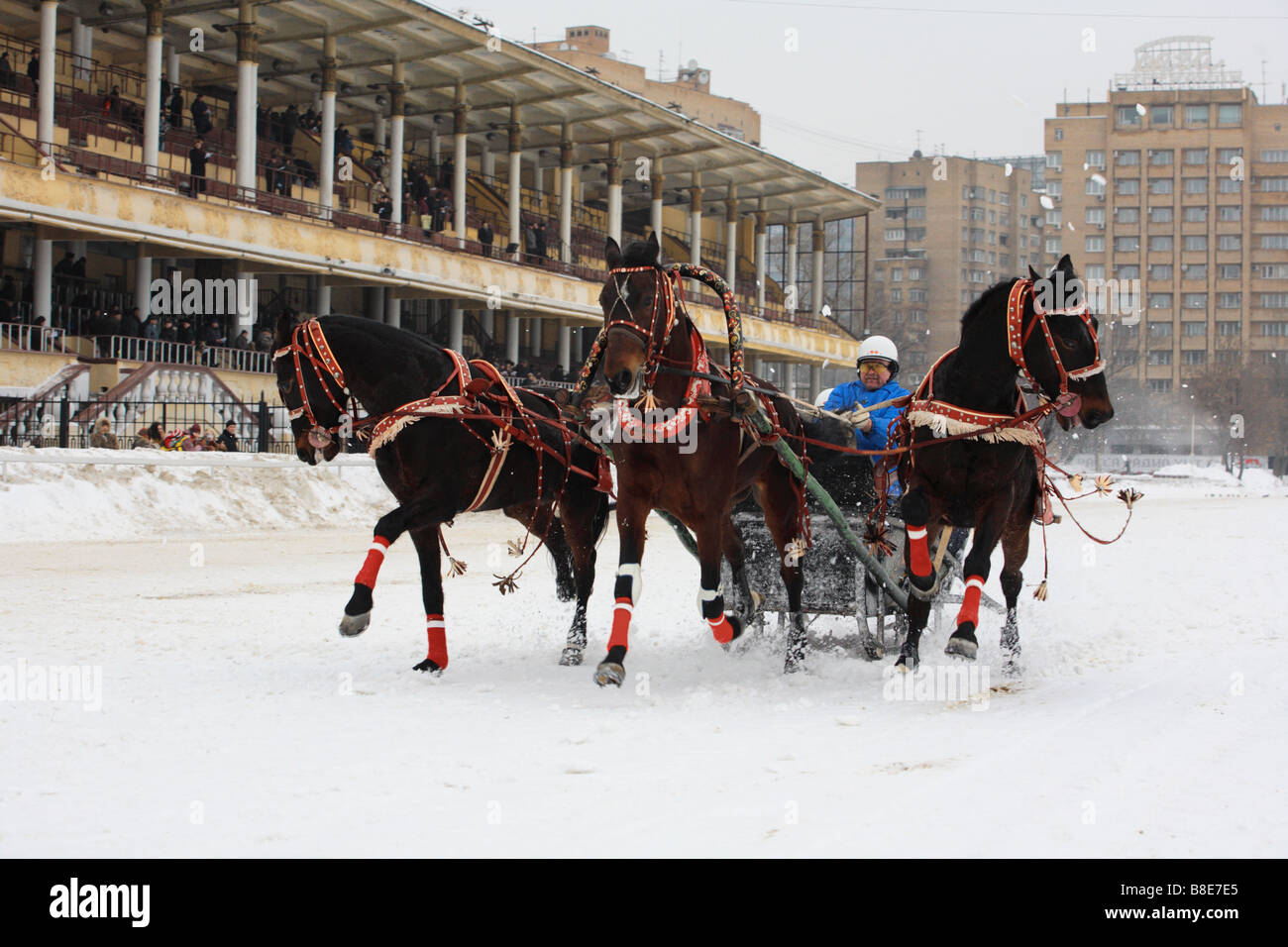Russian Troika driving competitions in Moscow

Image details
Contributor:
Mikhail Kondrashov "fotomik" / Alamy Stock PhotoImage ID:
B8E7E5File size:
51.5 MB (1.8 MB Compressed download)Releases:
Model - no | Property - noDo I need a release?Dimensions:
5197 x 3465 px | 44 x 29.3 cm | 17.3 x 11.6 inches | 300dpiDate taken:
2009More information:
The troika is a Russian carriage or sleigh turnout, which became a symbol of Russia. The troika's origin is rooted in the expanse of the country and the necessity of overcoming long and difficult paths at great speed. Three horses pulled the mail coach or the nobleman's carriage easier and faster. In summer the troika is driven on wheels, in winter as a sleigh. As there is snow half the year round in many regions of Russia, driving the troika with a sleigh is more popular even in summer. The present form of troika driving has been customary only since the middle of the 19th century. The center horse, firmly put between the wooden shafts under the Duga, moves in an extended straight forward trot, while the horses on either side gallop smoothly and swinging with outward bent heads, led by the coachman with only a single rein. The driver has four reins in his hands, two for the center horse and one each for the outside horses. This produces the harmony of movement which reminds one of a three–headed bird hovering in the air. The duga known for centuries in singles, forms together with the collar the centerpiece of the troika turnout. The wooden parts of the collar are usually made of willow or elm. Firmly attached by leather straps at the upper end are tongs. The best troika horses are Orlov trotters. Troika races have always been extremely popular in Russia, especially in winter. In 1956 annual troika driving competitions were resumed in Moscow. To begin with, only the coachman sat on the troika, later two co–drivers were added. For the sleigh races only speed counted, not the vehicle itself nor the horses. The choice of the carriage was left to the driver. Not so at the "Russian Winter" Festival in Moscow. Here driving style and beauty of the horses and harness, carriage or sleigh, dress and figure driving are assessed. The horses are judged on matching color, type and their correct size, though different breeds are allowed. Apart from beauty and eleganc